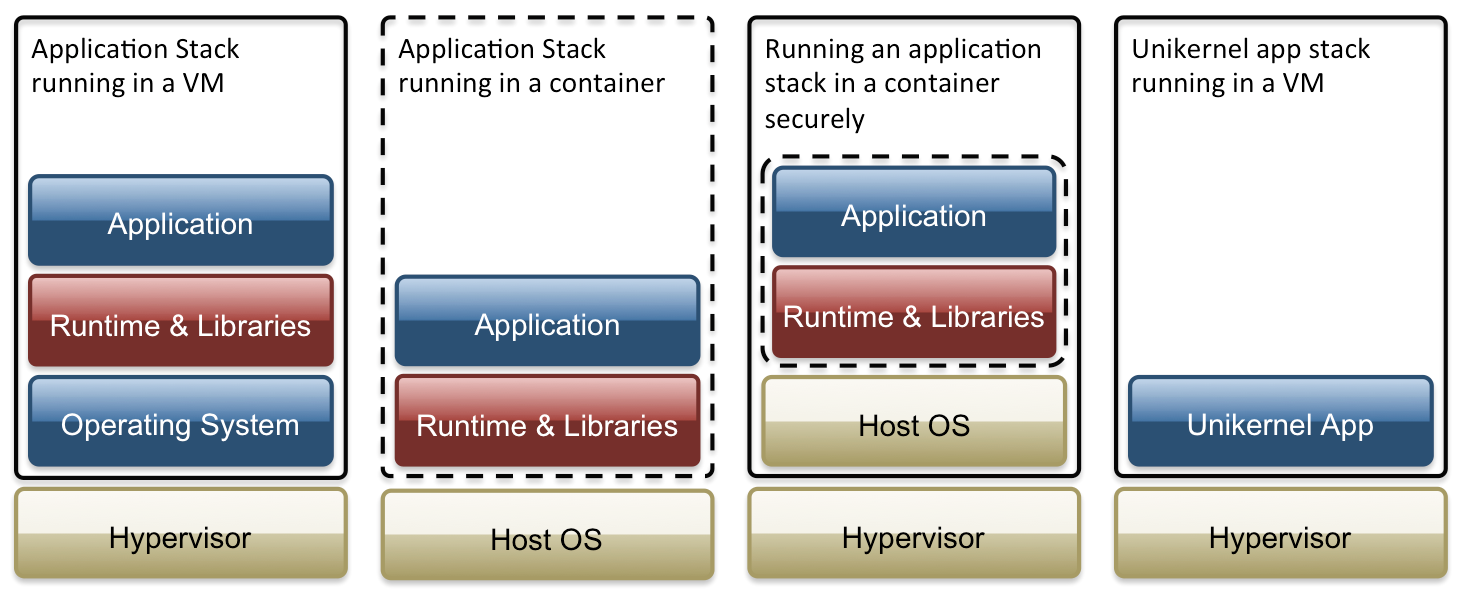This is a reprint of a 3-part unikernel series published on Linux.com. In part one, Xen Project Advisory Board Chairman Lars Kurth takes a closer look at the rise of unikernels and several up-and-coming projects to keep close tabs on in the coming months.
Docker and Linux container technologies dominate headlines today as a powerful, easy way to package applications, especially as cloud computing becomes more mainstream. While still a work-in-progress, they offer a simple, clean and lean way to distribute application workloads.
With enthusiasm continuing to grow for container innovations, a related technology called unikernels is also beginning to attract attention. Known also for their ability to cleanly separate functionality at the component level, unikernels are developing a variety of new approaches to deploy cloud services.
Traditional operating systems run multiple applications on a single machine, managing resources and isolating applications from one another.  A unikernel runs a single application on a single virtual machine, relying instead on the hypervisor to isolate those virtual machines. Unikernels are constructed by using “library operating systems,†from which the developer selects only the minimal set of services required for an application to run. These sealed, fixed-purpose images run directly on a hypervisor without an intervening guest OS such as Linux.

As well as improving upon container technologies, unikernels are also able to deliver impressive flexibility, speed and versatility for cross-platform environments, big data analytics and scale-out cloud computing. Like container-based solutions, this technology fulfills the promise of easy deployment, but unikernels also offer an extremely tiny, specialized runtime footprint that is much less vulnerable to attack.
There are several up-and-coming open source projects to watch this year, including ClickOS, Clive,HaLVM, LING, MirageOS, Rump Kernels and OSv among others, with each of them placing emphasis on a different aspect of the unikernel approach.  For example, MirageOS and HaLVM take a clean-slate approach and focus on safety and security, ClickOS emphasizes speed, while OSv and Rump kernels aim for compatibility with legacy software. Such flexible approaches are not possible with existing monolithic operating systems, which have decades of assumptions and trade-offs baked into them.
How are unikernels able to deliver better security? How do the various unikernel implementations differ in their approach? Who is using the technology today? What are the key benefits to cloud and data center operators? Will unikernels on hypervisors replace containers, or will enterprises use a mix of all three? If so, how and why? Â Answers to these questions and insights from the key developers behind these exciting new projects will be covered in parts two and three of this series.
For those interested in learning more about unikernels, the entire series is available as a white paper titled “The Next Generation Cloud: The Rise of the Unikernel.”
